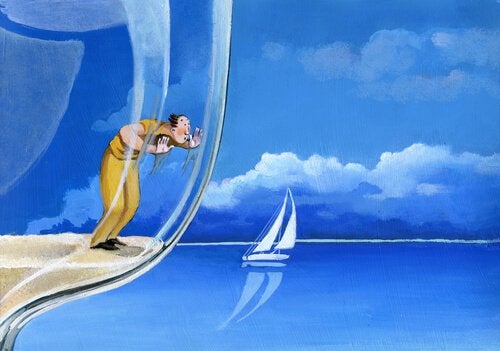Since the history of Adam and Eve in paradise, the forbidden has always been very attractive throughout human evolution.
At different stages of human development and interpersonal relationships, prohibition can generate different reactions, but always contrary to what the ban seeks Why do people have this attraction for what is forbidden?
“The mistake was to ban the apple. If the serpent had been forbidden, would Adam have eaten it?”
-Anonymous-
To understand the psychology of attraction for the forbidden, one must understand psychological evolution from childhood, and from there, learn more effective strategies that do not generate attraction for what is to be banned.
When we are children curiosity leads us to know the world, we are interested in everything around us and we like to try new things, this is part of human learning that begins in childhood.
In childhood, what we don’t experience doesn’t exist or isn’t interesting.
If we want a child to be away from a specific place, we should not ban, but generate attractive alternatives and arouse their curiosity about what we want them to do.
In adolescence young people need to assert the thes, know each other and discover the other, for him it is a necessity of this stage that crosses, wants to be different from the standards of his parents and define his own way of being and thinking.
In this process of maturation of character and personality, young people need their own space and make their decisions; you must feel that you are clearly different from your parents.
At this stage, prohibition is yet another reason to question the behavior they have been taught since they were young, the ban becomes attractive and will differentiate and reaffirm us as someone unique and different.
When we forbid something from a teenager, it is advisable to explain and define why this option is not correct, show respect for their individuality as a person, for their opinion and their decision, in many cases learning through error is inevitable.
In this case, we can reach an agreement, negotiate to make everything beneficial for both young people and adults.
In any case, it should be noted that no matter how much we forbid, if the young person wants to do something we can hardly avoid it, so an agreement is more practical than a conflict that can take you physically. and emotionally away from your parents.
Adulthood is the stage of freedom, maturity, responsibility and commitment; it is when a person freely decides his life, regardless of his parents and makes decisions that will influence his life forever.
From that moment on, no one has the right to decide his way; he makes his own decisions and earns the respect of those around him.
At this point, prohibition generates rejection on the part of those who impose it and become more attractive is an attempt to show the world that we have our lives and that no one can and should not decide for us.
Every adult has the right to decide their life, even if they are wrong. Your loved ones can only respect your decision, although they can freely express their opinion without prohibitions, judgments, threats or reproaches.
Prohibition generates all kinds of feelings, including attitudes or behaviors contrary to what we hear, so it is obvious that we must learn to express ourselves differently, respecting the evolutionary process in which the other person is located.

